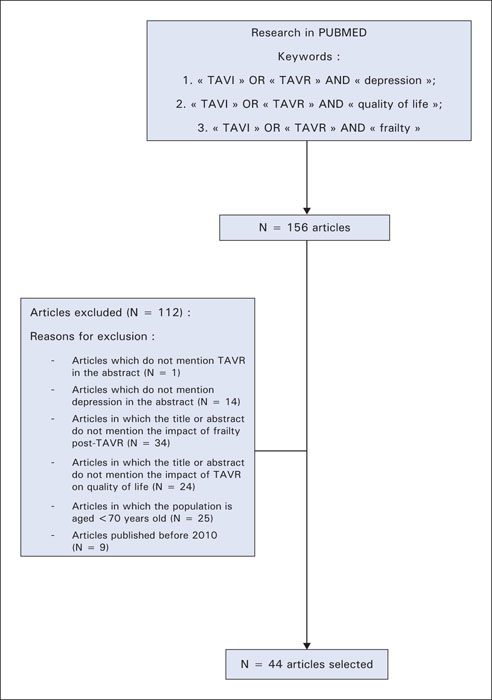Gériatrie et Psychologie Neuropsychiatrie du Vieillissement
MENUFrailty, depression and prognosis after transcatheter aortic valve replacement: a literature review Volume 19, issue 1, Mars 2021
- Key words: older, quality of life, frailty, depression, TAVR
- DOI : 10.1684/pnv.2021.0966
- Published in: 2021
A systematic review of the literature was conducted to analyse the results of studies evaluating the link between frailty and depression before transcatheter aortic valve replacement (TAVR) and vital prognosis and quality of life after TAVR. The literature indicates that TAVR is a procedure which improves quality of life at one year in older subjects. The longer-term effects are debatable, possibly depending on underlying comorbidities and their own course. The presence of depression before and after TAVR is associated with a lower quality of life at follow-up, suggesting the importance of systematic screening before and after TAVR. The underlying frailty of older patients who are eligible for TAVR is associated with excess mortality, justifying a pre-TAVR assessment of functional and cognitive reserves, and particularly their nutritional status. The link between depression before TAVR and excess mortality after TAVR has not been clearly demonstrated and may, in part, be linked to apathy or impaired executive functions, which can mimic depression, and which should also be investigated before TAVR.


